#thomas wolsey
Text
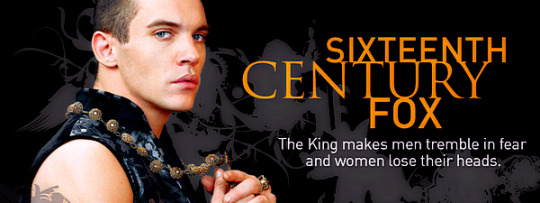

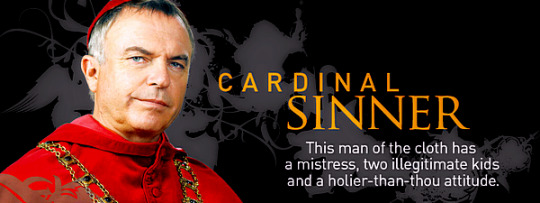
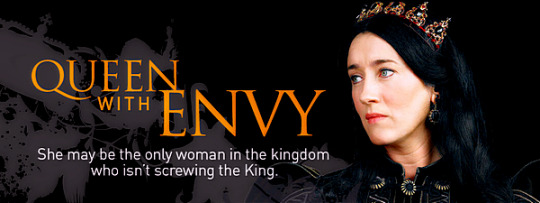


THE TUDORS (2007 - 2010) | Season One Subway Promotional Material
#the tudors#thetudorsedit#perioddramaedit#jonathan rhys meyers#natalie dormer#sam neill#maria doyle kennedy#henry cavill#gabrielle anwar#my edits#henry viii#anne boleyn#thomas wolsey#katherine of aragon#charles brandon#margaret tudor#the aughts promos are wild
160 notes
·
View notes
Text
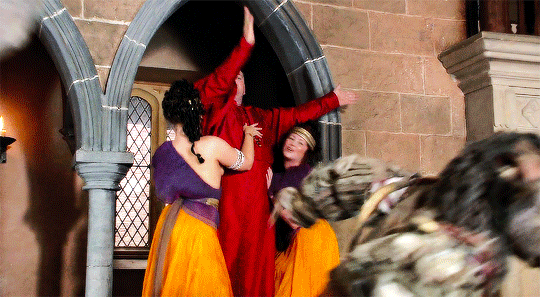
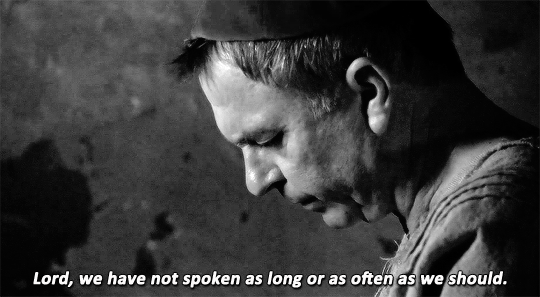
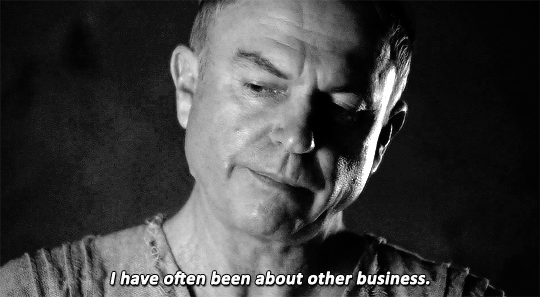
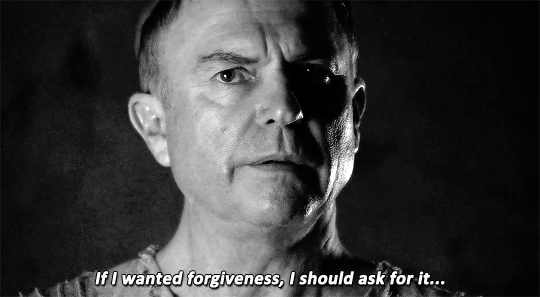



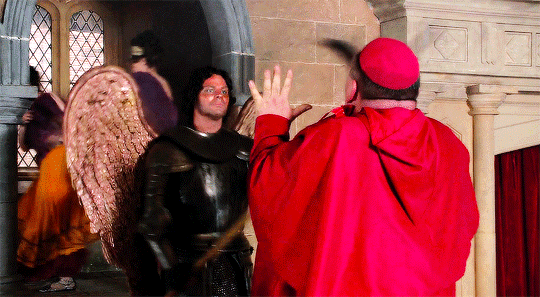




THE TUDORS (2007-2010) | S01E10
THOMAS WOLSEY death scene | requested by anon
"I shall not see its gates, Lord. Nor hear your sweet words of salvation. I have seen eternity, I swear... but it was only a dream, and in the morning all was gone. I know myself for what I am, and I throw my poor soul upon your forgiveness. In the full knowledge that I deserve none at your loving hands."
#the tudors#thomas wolsey#sam neill#cardinal wolsey#thetudorsedit#s1#perioddramasource#tudorerasource#period drama#tudor era#tudors#requests
213 notes
·
View notes
Note
How did cardinal Wolsey manage to go from being a religious figure to basically our life’s version of asoiaf ‘hand’? Was cardinals the second authority after the king because cardinal richelieu acted like this in france in the next century?
It's not that they were the second authority per se, but since the clergy were the most educated people in medieval society, it was quite common for them to end up in major government posts - especially if it involved specialized skills like knowledge of canon law.
So for example, if you go down the list of Lord Chancellors of England in the Middle Ages, they're almost all archbishops, bishops, deans, deacons, archdeacons, abbots, etc.. It's not until the 13th century that we start seeing barons or judges or justices or lawyers on the list, and even then they are very much in the minority.
#medieval history#clergy#thomas wolsey#medieval law#canon law#medieval government#medieval bureaucracy#lord chancellor#privy council#tudor england
48 notes
·
View notes
Text
Anne of the Thousand Days Review: Part 2
Alright, here's part 2! Spoiler alert but this movie has some shockingly regressive views about women... no, not just by the male characters in it.
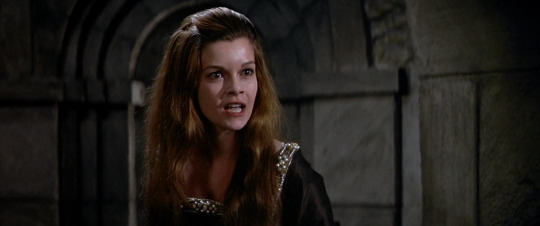
Absurdities only mount as Henry visits Anne in person in her Tower cell and offers to let her live and have custody of Elizabeth if she agrees to an annulment. Anne utterly refuses; while this is completely the opposite of what the real Anne did, this is an understandable deviation, as it is more straightforwardly heroic. Anne lying that she committed adultery with “half your court”, though, is not only baffling, but an insult to the real Anne’s memory. I know that sounds harsh, but bear with me. In the movie, Anne seems to fling this lie at Henry to wound his fragile masculinity, as seen in her remark that he should “look, for the rest of your life, at every man that ever knew me and wonder if I didn’t find them a better man than you!” But Anne shifts far too rapidly from crying out at her trial, “They were innocent as I am innocent! Any man, no matter who he is, who says the contrary, is a liar!”, to freely lying and stating that she’s an adulteress. There’s no buildup, no rhyme or reason that the audience can see as to why she would do such a thing. Moreover, the real Anne never confessed to adultery, twice swearing on the Eucharist that she was innocent of all charges. Anne of the Thousand Days’ portrayal of its Anne as flippantly and falsely confessing to adultery and incest undermines her real-life courage and bravery in maintaining the truth until the end, even on peril of her soul’s damnation. It’s incredibly disrespectful, to say the least.
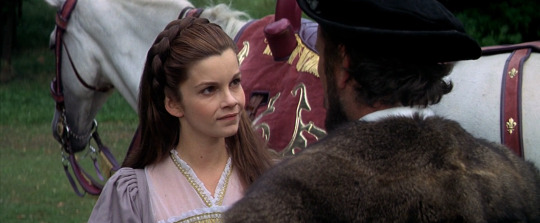
Above all, the movie fails on an emotional level. Not only does it sag in the middle with its pacing and excitement, but it fails to create a compelling or believable relationship between Anne and Henry, the movie’s two leads. The marketing for this movie played up its romantic aspects, even if it is really more reminiscent of a boss sexually harassing young female interns; its poster reads, ‘He was King. She was barely 18. And in their thousand days they played out the most passionate and shocking love story in history!” However, the movie fails to convince audiences of a core part of its story - the romance, let alone the believability of Henry and Anne’s relationship. There are usually two ways adaptations go with Henry and Anne’s relationship. They either have Henry and Anne, after some point, have a genuinely loving relationship until it goes horribly wrong (e.g. The Tudors, Blood, Sex, & Royalty) or portray Anne as stringing Henry along to win a crown (e.g. Henry VIII and His Six Wives (1972), The Other Boleyn Girl, Wolf Hall to an extent). Anne of the Thousand Days takes a third choice and goes the route of portraying Henry as sexually harassing an initially quite unwilling Anne. Henry’s attraction to Anne is never explained, as in the first scene (chronologically), he’s drawn to her before she says a word, even ordering Wolsey to break her romance with Percy. Why? Is it just because he wants her in his bed? After all, Henry declares at one point that he’s never been refused by a woman; maybe he finds the challenge exhilarating. But if so, why does he remain fixated with her after she insults his words and poetry, even though he says there’s no better way to end his interest than by doing that? Indeed, Anne later says that Henry wants to know whether she’s guilty because “that would touch your manhood and your pride”, indicating that he is touchy about such subjects. Apparently, though, he’s not sensitive enough to abandon Anne after she blasts every part of his personality at the start of their courtship. Why does he still try to woo her for six years, throughout which Henry admits that “Not once have you said, ‘I love you’”? To be clear, it’s not an impossible scenario, but it is perhaps the farthest thing from romance imaginable.

In other words, what are we supposed to think of Henry and Anne’s relationship? Far from being a passionate romance turned toxic, Anne of the Thousand Days portrays a toxic relationship driven by lust on Henry’s part and ambition on Anne’s part, a relationship where supposedly, they only love each other for one day. Such a characterization of any relationship, let alone the fascinating and complex one of the real Henry and Anne, would be too reductive. Henry starting to hate Anne immediately after she falls for him not only is too simplistic for viewers, but not even supported by the movie. Henry continues to love Anne and behave affectionately towards her after they sleep together until she gives birth to Elizabeth, meaning there are at least nine months of mutual love between them in the movie’s timeline!

Even the ending of Anne of the Thousand Days, despite its seemingly-empowering voiceover of Anne narrating how Elizabeth will be a great queen, is hampered by an unwillingness to face the full tragedy of her death. In real life, Anne was at most 35 when she was beheaded on false charges, and in the timeline of the movie, she’s around 29, following the 1507 birth date. Anne’s death is presented as poignant, as she remarks on the May flowers growing just as she did on her coronation day. But the absence of her execution speech, in what I can only assume is an attempt to highlight its somber brutality, is in fact borderline disrespectful to the real woman. While unlike Anne Boleyn (2021), this film does not purport to present Anne’s side of the story through a feminist lens, it is still galling that in place of the real Anne’s words, the writers inserted a fictitious monologue about Elizabeth’s greatness, which the real Anne could never have known! The real Anne Boleyn was a highly intelligent, ambitious, and reform-minded queen executed by her husband on false charges. Not only was her death, along with the deaths of the five men accused with her (never mentioned in the film!) a grave miscarriage of justice, but it was a tragedy. Much of its tragic nature derives from the fact that Anne left her toddler daughter, as far as she knew, dependent on the whims of her father and a bastard. There is no way she could have known, that anyone could have known, that Elizabeth would become queen. Anne of the Thousand Days giving Anne this knowledge makes sense out of a senseless, brutal demise, almost implying that there was a silver lining to Anne’s death because her daughter became queen.

It once again defines a woman by her reproductive history, and the film follows in a long tradition of claiming Anne’s real worth lay in her womb and the great queen it produced, her tragic downfall notwithstanding. Despite its ostensible focus on Anne Boleyn, the movie, like so many films then before and since, fails to understand - arguably, does not try to understand - historical women like Anne on their own terms. Women, in this mindset, must always be defined by their relation to a man or an exceptional woman. It’s not enough that Anne was an exceptional woman in her own right, that women are inherently important on their own, not by virtue of their family. Anne of the Thousand Days, at a time when cinema was pioneering in so many ways, is rigidly traditional in its views of women. Dramatic license with history needs to both fulfill a satisfying dramatic aim and at least be in contact with the facts; Anne of the Thousand Days’ portrayal of its titular queen’s death fails on both counts.
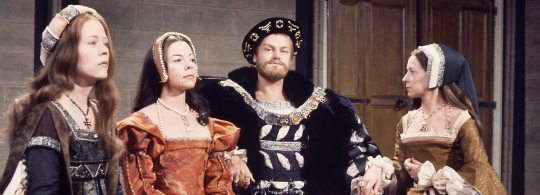
Needless to say, I didn’t like this movie. Its costumes, sumptuous pageantry, and strong performances from Genevieve Bujold as Anne, Anthony Quayle as Wolsey, and John Colicos as Cromwell, cannot make up for the fact that the rest of the film’s parts are either mediocre or simply bad. Why then do so many people think fondly not just of Genevieve Bujold’s Anne, but also this movie? Part of it must be nostalgia - it would have gained a special place in the hearts of Tudor fans who grew up in 1969 and the following decade. Its accessibility for purchase on platforms like Amazon Prime, Apple TV, and Youtube, also meant it gained more popularity than the far superior 1970 BBC miniseries The Six Wives of Henry VIII, which is only available on DVD and the platform Britbox. But I’ve argued in this review that Anne of the Thousand Days is just as inaccurate as more scorned depictions like The Tudors; in fact, I firmly believe that on the whole, Anne of the Thousand Days has more inaccuracies in its plot and characterization than The Tudors! Why, then, in spite of its major inaccuracies, does Anne of the Thousand Days retain a reputation for authenticity?
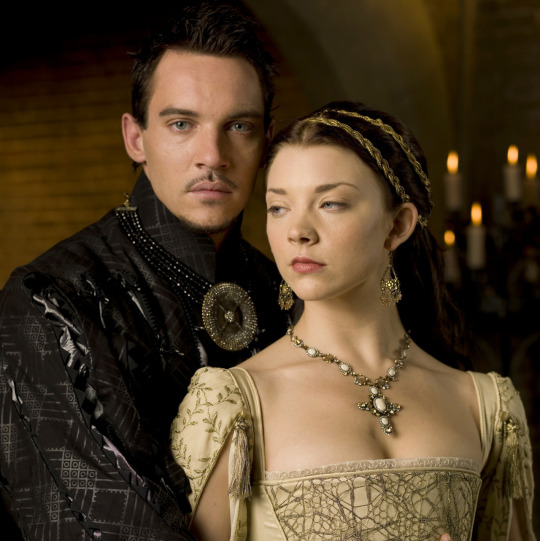
The fact Jonathan Rhys Meyers looks nothing like Henry VIII in The Tudors and has little of the real king’s imposing majesty is surely part of it. More to the point, though, The Tudors’ propensity towards sex and nudity in its first two seasons meant it seemed louche and vulgar compared to the sober and slow-paced Anne of the Thousand Days. If Natalie Dormer’s Anne was criminally overlooked by critics because of her show’s disreputable appearance, then the opposite has occurred with this movie. Genevieve Bujold’s great performance has managed to elevate a quite mediocre and often horribly reductive movie into the hallowed halls of the Period Drama Pantheon. It’s time for a broader reappraisal of this movie: one which dethrones it for good.
#tudor era#the tudors#anne of the thousand days#anne boleyn#genevieve bujold#richard burton#henry viii#thomas cromwell#thomas wolsey#catherine of aragon#katherine of aragon#jane seymour#elizabeth i#tudorerasource#ya so... hot takes#if anyone wants to watch a really good but underrated Anne#might I suggest#Dorothy Tutin in The Six Wives of Henry VIII (1970)#available on DVD#Britbox#pirating sites#and OK dot ru#literally such a good performance she needs more love
20 notes
·
View notes
Note
Hi there,
Love your blog! Do you know much about The Duke of Norfolk's relationship with Cromwell? I'm currently re-watching the Tudors and unfortunately the Howards are cut out by Season 3 and 4. I read a theory recently that the Howards including the third Duke wanted to take out Cromwell because he took down Anne Boleyn. Is there any truth to that? Would love to know if there is.
I don't think Anne Boleyn's downfall helped, but I think Cromwell and Norfolk already had plenty of reasons to want each other out of favour. Cromwell was Wolsey's servant, after all, and Norfolk was very sensitive to hierarchy. As an aristocrat he was very aware of 'new men' like Cromwell, Wolsey, and yes- More too. More was the grandson of a baker, so in Norfolk's eyes he's only one generation higher than Cromwell, son of a brewer.
And while Norfolk supported the Break with Rome, he was a traditionalist in terms of religion. And while More, Cromwell, and Wolsey were all enthusiastic about renaissance humanism, judicial reform in favour of ordinary citizens, (and also critics of enclosures) these aren't policies that benefit the likes of Norfolk. More is often portrayed as friends with Norfolk, but the only real evidence I see for that is the hagiography written in the 1550s- at a time when Cromwell was controversial at best, while Norfolk was supporting Mary I. When More's grandson was born in the 1530s, it was Cromwell his parents chose as godfather.
Norfolk is often portrayed as boorish and uncultured, which is a gross simplification. But Norfolk preferred medieval chivalric literature to ancient literature. Erasmus called such medieval literature 'barbarous fables' and perhaps Cromwell would agree- certainly, Cromwell and More both loved Erasmus' New Testament, Cromwell learning it off by heart.
Also, Cromwell had a 'genuine and selfless' (Macculloch) friendship with... Norfolk's wife Elizabeth. If Cromwell needed more reasons to despise Norfolk, Elizabeth would give him PLENTY.
So Cromwell and Norfolk really have no shared culture, their worldviews and goals don't align. I think Norfolk would want Cromwell out, even if 1536 never happened.
13 notes
·
View notes
Text
Please promulgate so we may see everyone’s opinion on the Tudor Era Thomases (Henry VIII edition)
Also, take a shot for each Thomas on the list who was executed!
#the tudors#cromwell#Cranmer#Thomas more#Thomas Cromwell#Tudor era#history#Thomas Wolsey#cardinal Wolsey#henry viii#Tudor England#early modern period#early modern England#16th century
80 notes
·
View notes
Photo

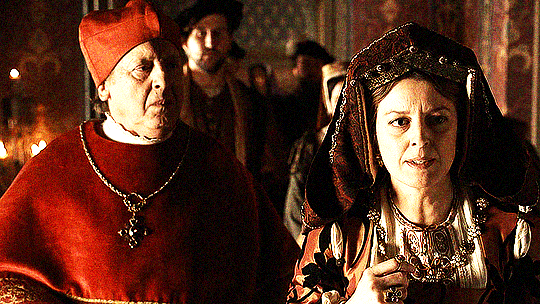

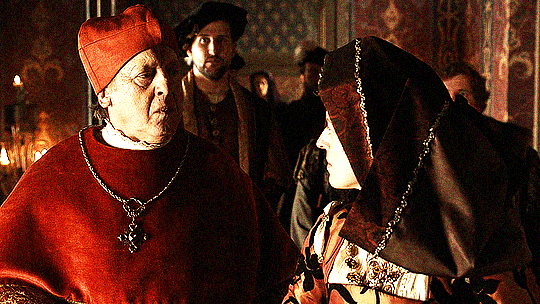
Katherine of Aragon and Wolsey in Carlos, Rey Emperador 1x05
as requested by @isadomna
50 notes
·
View notes
Photo

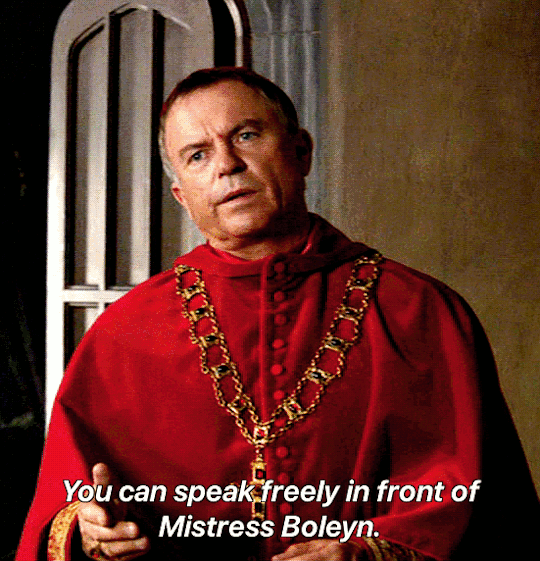
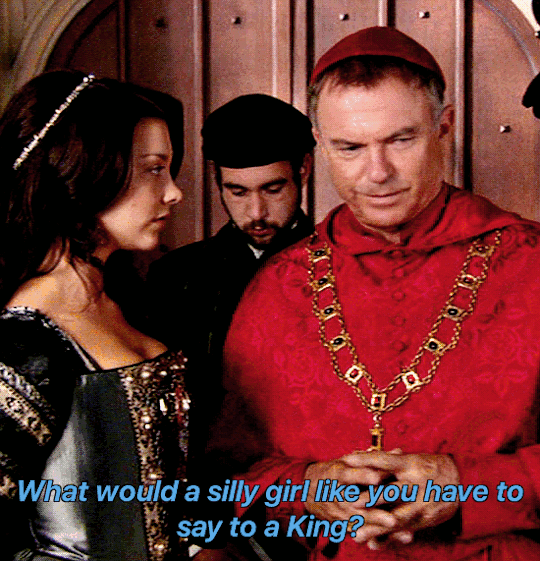
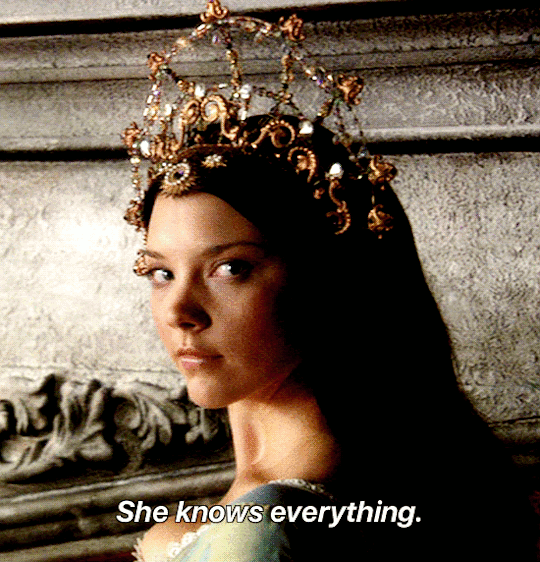
Lady Anne, what are you doing here? // Your Majesty, if I could speak to you in private...?
#the tudors#tudorsedit#anne boleyn#thomas wolsey#perioddramaedit#thetudorsedit#natalie dormer#weloveperioddrama#userhayf#chewieblog#userstream#userbrit#dailyreblogs#userthing#usersource#useroptional#cinemapix#dailytvfilmgifs#dailytudors#userrizz#usersansa#show: the tudors#ours#*gifs#michelle
350 notes
·
View notes
Text

Claire Bloom as Catherine of Aragon, John Stride as Henry VIII and Timothy West as Cardinal Wolsey on the set of Henry VIII (1979)
#catherine of aragon#katherine of aragon#catalina de aragón#catalina de aragon#henry viii#king henry viii#henry viii of england#henry tudor#cardinal wolsey#thomas wolsey#tudor history#the tudors#english history#tudor era#tudor period#tudor dynasty#period drama#period piece#claire bloom#John stride#Timothy west
16 notes
·
View notes
Text
Fitzroy saw in Wolsey something of a father figure, a role that fully supports the view that the cardinal had remained in close contact with him during his infancy and early childhood. This is further supported both by Wolsey's continuing contact with Bessie [Blount] and Gilbert [Tailboys], as well as the fact that, on the morning of his elevation it was from Durham Place, Wolsey's London residence, that Henry Fitzroy set out by water to travel to Bridewell Palace to meet his father.
Bessie Blount – Mistress to Henry VIII, Elizabeth Norton
7 notes
·
View notes
Text
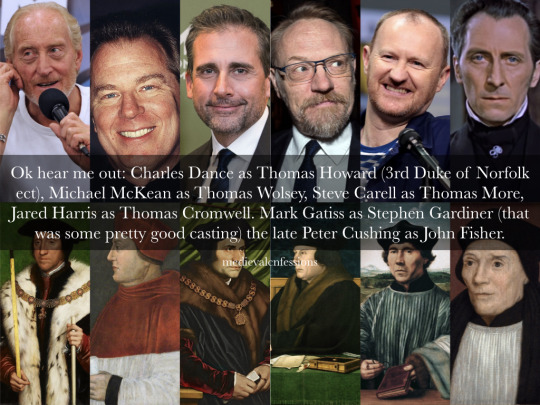
#fancast#thomas howard 3rd duke of norfolk#charles dance#thomas wolsey#michael mckean#thomas more#steve carrell#thomas cromwell#jared harris#stephen gardiner#mark gatiss#john fisher#peter cushing#tudor history#16th century#english history#medieval confessions
16 notes
·
View notes
Text

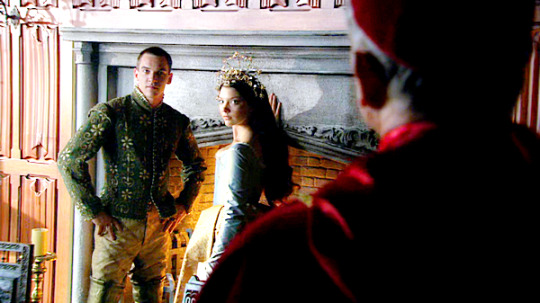

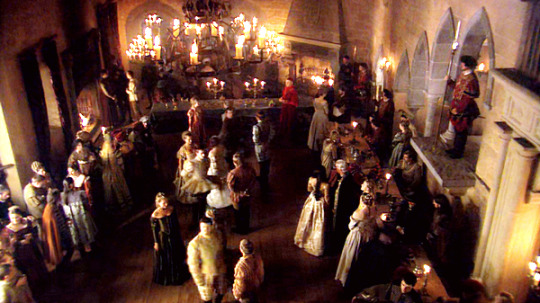

♕ @dailytudors: TUDOR WEEK 2023 ♕
Day One: Favourite Tudor Rivalry >> 1/2 - Anne Boleyn and Thomas Wolsey
#the tudors#perioddramaedit#thetudorsedit#tudorweek2023#natalie dormer#sam neill#jonathan rhys meyers#anne boleyn#thomas wolsey#henry viii#my edits#caps#tudorcaps#dailytudors
122 notes
·
View notes
Text
51 notes
·
View notes
Text
To my Lord Cardinal's Grace
Please it, Your Grace; the King's Highness arrived here this night at 8 of the clock, and the Queen did meet with His Grace at his chamber door, and showed unto him, for his welcome home, her belly something great, declaring openly that she was quick with child; whereof the King's Highness commanded me immediately to advertise Your Grace, in his name, and to desire the same to command that Te Deum laudamus be solemnly sung in Paul’s, in like manner as His Grace will command to be done here tomorrow. Valeat felicissime, Reverendissima Dominatio Vestra, cui me humillime commendo et trado. Ex Wudstokke, quinta die Julij post horam decimam noctis.
The King's Grace, at his entry of the gates, found there all such as be here of his Council, and said unto us all secretly, that as soon as he had spoken with us, we should all be merry.
Excellentissimæ Dominationis Vestræ Reverendissimæ,
Ri Paceus.
Letter from Richard Pace to Thomas Wolsey, 5 July 1518. Transcribed myself from the original.
Note: The italicised Latin has been left in its original wording; it translates to phrases of humble recommendation commonly found in the closing of letters at this time.
15 notes
·
View notes
Text
Anne of the Thousand Days Review: Part 1
Alright, so I got around to writing this review, and boy do I have some hot takes! Fair warning, though; this is so long I'll need to post this in two parts.
“For six years, this year, and this, and this, and this, I did not love him. And then I did. Then I was his. I can count the days I was his in hundreds … In all one thousand days. Just a thousand. strange. And of those thousand, one when we were both in love, only one, when our loves met and overlapped and were both mine and his. And when I no longer hated him, he began to hate me.”
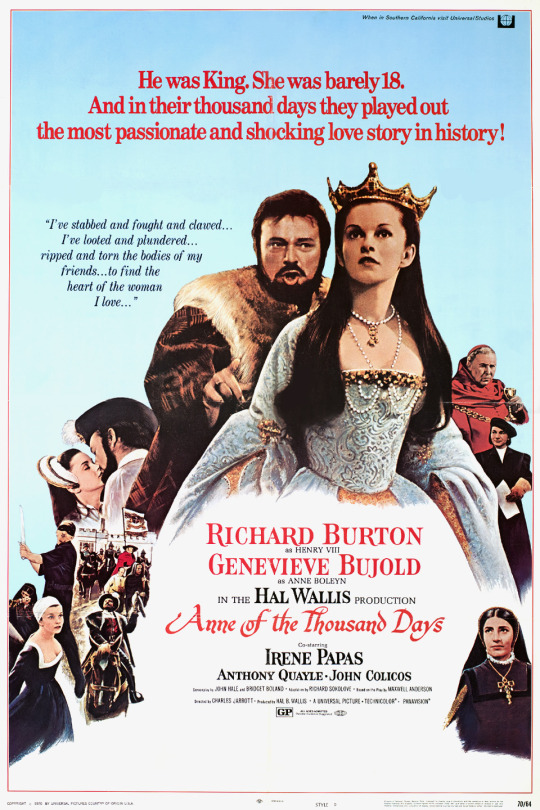
Where do I even begin with this review? I disliked this movie when I first watched it, and after a rewatch, I still dislike it. Anne of the Thousand Days is a tedious slog of a movie which somehow both has a fundamentally weird premise and forgets its own premise at times, especially in its marketing. The poster for this movie claimed that it showed “the most passionate and shocking love story in history!” As we’ll see, though, it’s hard to claim this depiction of Henry and Anne have a grand love affair when they only mutually love each other, at least in Anne’s telling, for one day.

Anne of the Thousand Days started as a Broadway play in 1948, written by American playwright Maxwell Anderson. With Rex Harrison as Henry VIII and Joyce Redman as Anne Boleyn, the play was a critical and commercial success, running for nearly 300 shows. However, as it dealt with themes of adultery, illegitimacy, and incest, Anne of the Thousand Days ran afoul of the Hays Code, so it took over two decades to be adapted into a movie. Most of the blank verse of the play was removed, many scenes were expanded into two, three, or four, and Anne was given a monologue about Elizabeth’s future greatness to shout at Henry in the Tower. Richard Burton was cast as Henry, and the virtually unknown French-Canadian actress Genevieve Bujold was cast as Anne. Burton’s wife Elizabeth Taylor feared the two were having an affair, so she managed to obtain a cameo to keep an eye on them. Taylor had actually lobbied for the role of Anne, but at 37, she was deemed too old for Anne, who (following the scholarship of the time) aged from 18 to 29 over the course of the film. One can only wonder…
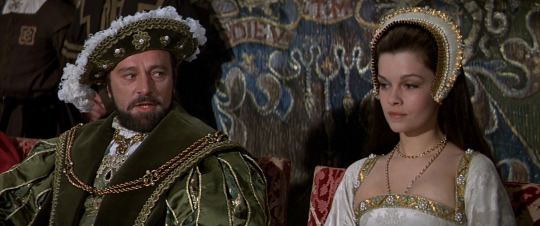
The movie follows the basic outlines of history, with a heavy emphasis on “outlines”. The opening scene is of Henry agonizing whether to sign Anne’s death warrant, as we soon transition into a palace ball where Henry falls for the vivacious and charming Anne as his sober, pious wife Catherine of Aragon despairingly looks on. He orders his chief minister, Cardinal Wolsey, to break up Anne’s relationship with the “Northern clodhopper” Harry Percy, much to her fury. She vigorously resists Henry’s advances, her resolve only strengthened by her pregnant sister Mary, who gave in to Henry and now carries his child. Mary prophetically warns, “The moment you’re conquered, he’ll walk away.” Despite Anne’s utter refusal to return his feelings, Henry continues to “love” (yes, the quotes are necessary) Anne, and eventually proposes divorcing Catherine and making Anne queen. She accepts, but unfortunately, political circumstances abroad combine to make it clear that the Pope will not grant Henry a divorce. Having fired Wolsey for his failure to get the divorce, and encouraged by his new chief minister Thomas Cromwell (and to a lesser extent, Anne) to break with Rome to get his way, Henry does so. After a tense confrontation, Anne finally tells Henry that she loves him, and they sleep together; she soon becomes pregnant and they’re married in a shotgun, bigamous wedding.
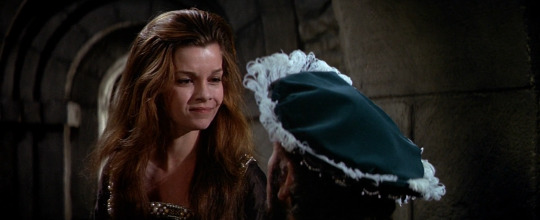
Anne is reviled at the coronation, but despite Henry’s hopes and Anne’s promises, she gives birth to a daughter, Elizabeth. Henry is furious and his eye begins to wander towards Anne’s lady-in-waiting Jane Seymour. Anne is furious and demands that Henry make everyone swear an oath recognizing their daughter as his legitimate heir on pain of death, leading to the execution of Sir Thomas More. Anne promptly miscarries a boy and Henry, believing his marriage accursed, orders Cromwell to find a way out. Cromwell soon trumps up charges of adultery with five men, incest with her brother George, and treason, which lead to Anne’s arrest. At her trial, though, Henry suddenly (and ahistorically) bursts in and manages to get the only one of the five who confessed to admit he lied under torture. Henry is still unsure of whether Anne is guilty, and he confronts her in the Tower. Anne utterly refuses to agree to an annulment, even if it means her death, and lies to Henry to hurt his manhood, declaring that she cheated on him with countless men, finding them far better lovers. For good measure, she then proclaims, “Elizabeth shall be a greater queen than any king of yours. She shall rule a greater England than you could ever have built! Yes - my Elizabeth shall be queen. And my blood will have been well-spent.” Henry promptly signs her death warrant and Anne is beheaded by a French swordsman, the movie ending with a shot of the toddler Elizabeth walking towards her destiny.

Incredibly, I did like some stuff about this movie. The costumes, designed by Margaret Furse, are exquisite and mostly accurate; if nothing else, this movie deserved its Best Costume Design Oscar. Even the fact that Genevieve Bujold’s French hoods nearly always lack a proper veil doesn’t matter, in my opinion, since she manages to pull it off. The coronation procession was absolutely stunning, and the recreation of the Tower of London is incredible; they really minimized the distance between Tower Green and St Peter ad Vincula, though. Despite not using surviving Tudor pieces, the score, composed by Georges Delerue, manages to evoke the period really well.
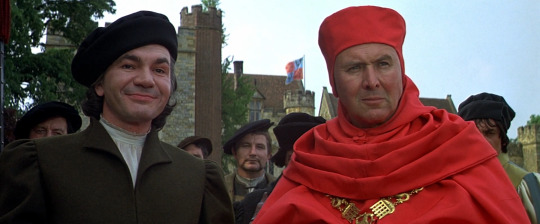
Concerning the performances, I loved Anthony Quayle’s depiction of Cardinal Wolsey, as he goes from a self-assured, powerful man to a broken, fallen minister. His final scene is heartbreaking, and Quayle humanizes him throughout; even when he breaks up Anne and Harry Percy, he doesn’t seem thoughtlessly cruel. John Colicos’ portrayal of Cromwell as “a man without scruple” is a delightfully villainous characterization, a schemer who owns up to his villainy and revels in manipulation.
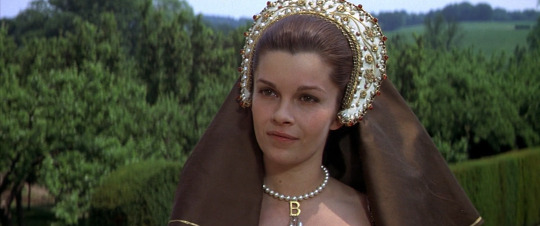
A review of Anne of the Thousand Days, of course, would be incomplete without a discussion of Genevieve Bujold’s Anne Boleyn. While not one of my top three favorite Anne Boleyn portrayals (for the record, Natalie Dormer, Dorothy Tutin, and Claire Foy), Bujold does a good job with Anne. She compellingly portrays Anne’s growth (and increasing ruthlessness) from a lovestruck teenager to a fiercely protective mother, as you can see her grow and harden over the course of the movie. She also captures Anne’s boldness and vivacity of spirit well, although sometimes to the point of straining credulity. Would the real Anne have maintained Henry’s love if she told him at the start of their relationship, “You’re spoiled and vengeful and bloody. Your poetry is sour and your music worse. You make love as you eat - with a great deal of noise and no subtlety”? It seems very unlikely. Anne’s frank declaration to Harry Percy that she’s not been a virgin for a long time additionally seems very incongruous with the historical Anne. Bujold’s acting, too, sometimes feels not just theatrical, but overly artificial and overdone, particularly when she has to express anger. Still, the fact that it is hard to imagine this Anne captivating Henry for seven years is not Bujold’s fault - she performs well the script as written - but that of the writers.
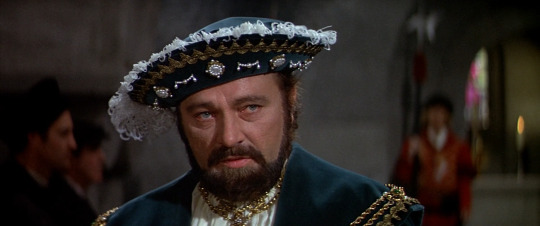
Unfortunately, this is the part of the review where I must tackle the things I disliked about this film. Equally unfortunately, there are quite a lot of them. The elephant in the room is Richard Burton’s depiction of Henry. In both history and popular depictions, Henry was and is the center of his court, someone who shifted from passionately loving Anne to furiously ordering her death on false charges; in any depiction of Anne, he is the other main character. Put bluntly, Richard Burton gives perhaps one of the creepiest portrayals of Henry VIII I’ve ever seen. While not worse than Ray Winstone’s portrayal of Henry as a marital rapist, Burton portrays Henry as a serial sexual harasser and predator. He combines the real Henry’s unshakeable belief in his own self-righteousness with a seedy lustfulness which will stop at nothing, not even claiming he’s only sexually potent with the woman in question, to get into a woman’s bed. There is little trace in this portrayal of Henry’s intellectual or cultural pursuits, and even the times when he exhibits bonhomie feel forced and fake. Furthermore, at only 5’8, Richard Burton is half a foot shorter than the real Henry, meaning he lacks the physical towering presence of the real man; he thus doesn’t physically stand out from his courtiers. In fact, Anthony Quayle as Wolsey is two inches taller than Burton; a screen Henry ought to tower above his courtiers, not vice versa!
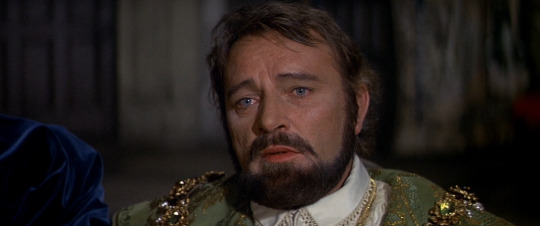
Anne of the Thousand Days also completely misunderstands the history of the period, changing it in ways that not only make no sense plot-wise, but which indicate the writers genuinely did not understand the period. Some inaccuracies stem from changing historiography - despite being named after Anne Boleyn, the movie portrays a less politically active Anne than more recent depictions like The Tudors and Wolf Hall. However, this lack of emphasis was the result of the historiography of the time tending to minimize Anne as a political figure; only in 1986 with Eric Ives’ seminal biography of Anne would attitudes change. The inaccuracies I object to are ones which betray a lack of understanding of the basic nature of the history. I’ve already mentioned one of these inaccuracies (Anne admitting to Harry Percy that she’s not a virgin), but there’s several others. For example, Henry is seriously conflicted about breaking with Rome, stating that it would mean “everlasting damnation” and result in his soul being cast into Hell. However, this fundamentally misunderstands the real Henry’s character. When he decided on a course of action, it was not only incredibly hard to dissuade Henry from it, but he often became increasingly convinced of his own self-righteousness. As a pious early modern king, Henry would not have broken with Rome had he harbored as many doubts about its morality as he does in Anne of the Thousand Days.
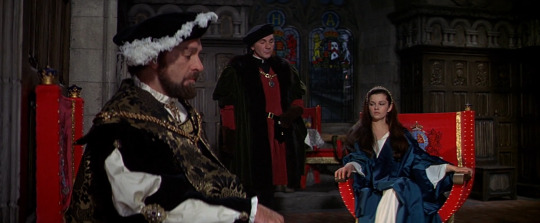
Moreover, the Act of Succession in the movie is passed only after Anne agrees to bring Jane Seymour back to court from a (fictional) exile in Northumberland. Henry himself states that “One daughter is much like another. I care not who’s named bastard when I’m dead.” As this Anne points out, this version of Henry is declining to enshrine their daughter’s legitimacy in law so he can sleep with another woman. Unsurprisingly, this did not happen in real life; the real Henry, no matter how much he wanted a son, would not have shot himself in the foot by doing this! To not pass the Act of Succession wouldn’t just harm Elizabeth, but any children, including a son, he had by Anne; Elizabeth, after all, was only heir in lieu of any sons. These are serious departures which go beyond artistic license and veer into a real lack of historical comprehension.
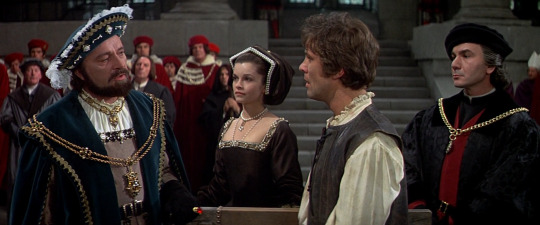
The biggest (and most absurd) inaccuracy, though, comes in Anne’s trial and resulting confrontation with Henry in the Tower. First, Anne is allowed to cross-examine Smeaton, who is brought in, along with her brother George, during the course of the trial. But this greatly downplays just how rigged the real Anne’s trial was, as in real life, no witnesses were called. Even if they had, it is incredibly unlikely Norfolk, who hated his niece in history, would have let her cross-examine them. But then, any semblance of accuracy, realism, or even sense is sacrificed wholly on the altar of drama as Henry himself enters and gets Smeaton to confess that he’s innocent. If this had happened, there would be no reason for Henry to execute him, like Burton’s version promises he’ll do. Moreover, as Smeaton was the only person (both in history and the film) who confessed, retracting his confession would mean there were no witnesses, which would have torpedoed the government’s case against Anne and the men. But Henry does this and then proceeds to mutter, “And yet… it could be true,” which is only explicable in the film if he genuinely thinks Anne is guilty of adultery. The problem is that Anne has never flirted with any of the men on screen; she’s never talked to the ones aside from her brother at all! This means that the accusations of adultery come out of left field, a failure of writing which leaves the viewer wondering where on earth that came from.
PART 2 HERE:
#tudor era#anne boleyn#anne of the thousand days#genevieve bujold#henry viii#richard burton#catherine of aragon#katherine of aragon#jane seymour#elizabeth i#the tudors#I have so much to say about this movie#but it's just not good IMO#Genevieve Bujold Anthony Quayle and John Colicos#as Anne Wolsey and Cromwell#cannot save this movie#tudorerasource#thomas wolsey#thomas cromwell
18 notes
·
View notes
Text
I was going to make a longer post about it but I'll summarise.
Areas of agreement between Wolsey, Cromwell AND More:
1) Peace is more advantageous than war*
2) Renaissance humanism is good. Humanist scholarship deserves patronage
3) More preaching please. And expand education.
4) Enclosures are bad for the poor. Limit the practice as much as possible.
5) You can use violence to intimidate the vulnerable into saying what you want them to say. If not by actual torture, then certainly corporal punishment.**
6) Execute religious dissidents. Burning heretics is OK.***
7) It would be good for people to have an English bible.****
8) The justice system is a complex mess that needs reforming so ordinary people can better access justice for their suits.
*this policy is different to the wishes of young noblemen who want military glory
**Case in point: Richard Purser, Mark Smeaton, "prick him with pains".
*** The area of disagreement here is not "is burning heretics OK?" but "what is heresy and what isn't?" Case in point: Wolsey appointing More to the heresy commission, recommending More as his successor, and the John Lambert case of 1538.
****The disagreement is NOT "would people benefit from a vernacular Bible?" But "how would this bible be translated and who should translate it?"
26 notes
·
View notes